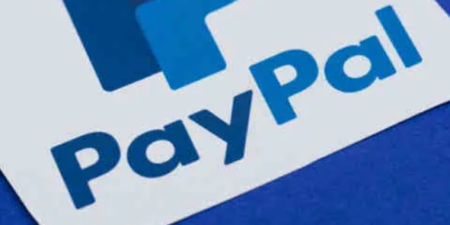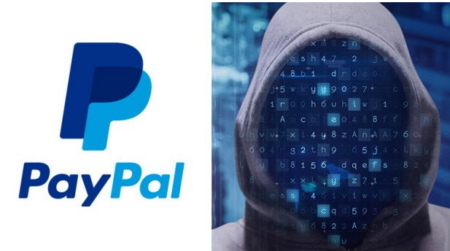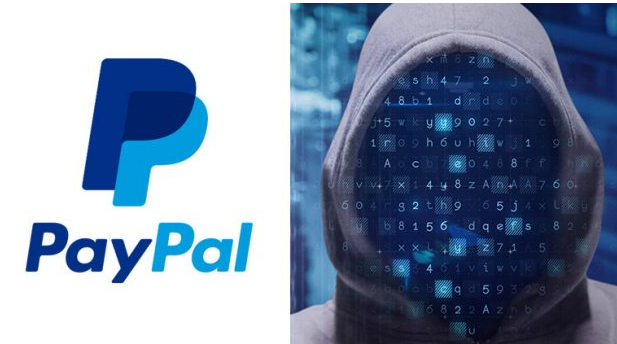Founded way back in 1998 , PayPal is a digital platform that guarantees extremely secure transactions , but unfortunately it is not completely excluded from security problems. Many cyber attackers implement a PayPal scam to steal users’ personal data or even their digital money . Today we’ll look at how to recognize and avoid potential PayPal scams . For further information, our guide on how PayPal works may be useful to you.
What are the most common PayPal scams.

In the event that you were to fall into a PayPal scam, you would be the victim of a fraudulent action by a third party with the aim of deceiving you, inducing you to make payments to foreign accounts or to the loss of personal data. But how do PayPal scams work ? You may come across different types of scams on this platform, let’s see the main ones.
- Fake invoice : The PayPal invoice scam involves receiving a digital document or fake payment request that actually appears to come from PayPal. In reality, scammers send you a document similar to the original one to trick you into making unauthorized payments.
- Passwords : another type of scam is linked to passwords, it consists of receiving a false email or message that induces you to reset your PayPal password with a form similar to the original one , but which has the purpose of memorizing the data you enter.
- Phishing : a particularly common PayPal scam is linked to order confirmation phishing. Also in this case you may receive an email message in which you must click on a certain link to confirm your order. If you have any doubts, you can forward the email to the mailbox [email protected] .
- False address : if an attacker uses the scam to disguise the shipping address, he will send the seller an address different from yours, conveying the goods to the place he prefers.
Below are some guides from the official website on protecting yourself from PayPal scams: How to recognize a fake PayPal site or email and how to identify fraudulent emails .
Preventive Measures to Protect Yourself; How to Not Get Scammed on PayPal as a Seller.

Now that we are aware of the potential risks, let’s discuss some preventive measures to protect yourself from scams on PayPal:
1. Verify Buyer Details
Before finalizing any transaction, it is essential to conduct due diligence and verify the buyer’s details. Check if the buyer has a verified PayPal account, as this adds an extra layer of credibility. Additionally, ensure that the billing and shipping addresses provided by the buyer match, reducing the risk of a scam.
2. Use Signature Confirmation
For high-value transactions, request signature confirmation upon delivery. This helps protect you from scams where buyers falsely claim that they did not receive the item. Signature confirmation provides proof of delivery, making it difficult for scammers to dispute.
3. Insure High-Value Items
If you regularly deal with high-value items, consider insuring the packages you send. While this may require an additional cost, it provides peace of mind knowing that you will be financially protected in case of any mishaps or scams.
4. Avoid Unsolicited Requests
Be cautious of unsolicited offers or requests from buyers. Scammers often pose as potential buyers, offering to purchase your item at a higher price or requesting personal information. Remember, if an offer seems too good to be true, it probably is.
5. Use Secure Packaging
Take extra precautions when packaging your items for shipment. Use tamper-evident packaging materials and ensure that the package is securely sealed. This reduces the risk of scammers claiming that they received an empty package or a different item than what was described.
How to Avoid PayPal Phishing Scams
Although the PayPal scams listed above are the main ones, over time new techniques may arise that have the same purpose. But how can you avoid running into a scam on such a well-known platform? First of all you should pay attention to the emails you receive when they arrive from PayPal , check that they are legitimate and absolutely avoid clicking on the links inside them or downloading the attachments (or at least don’t open them). If you use the web browser and a protected system, perhaps by VPN , you can check if the connection is secure, that is, if the URL has the wording https:// instead of http:// , the S stands for Security .
PayPal among its advanced tools allows you to activate two-factor authentication , an excellent solution if you want greater security. While it may seem tedious, periodically check your PayPal application or online account via your web browser for unauthorized transactions or unexpected charges .
To avoid scams related especially to phishing, report suspicious emails to PayPal, so that that particular address will be blocked in the following days. You can do this with any email provider, from Gmail to Libero ; just select Add to junk mail and immediately report spam .
In order for you to avoid email scams , we recommend that you update yourself on the fraud techniques that scammers apply. You can find out more on our website or consult the dedicated sections on the PayPal platform.
How to ask for a refund from PayPal if you have been scammed
One of PayPal’s strengths is the ease with which you can recover your money in the event of a scam. A PayPal payment scam is necessarily linked to an outgoing transaction, a condition that is monitored promptly by the platform. We must underline, however, that you can only request a refund if you have made a purchase or sent money with the buyer and services protection , but if you have sent money with the Send money to friends and relatives formula , the refund is a little more complicated to obtain.
In order to formally request a refund for a PayPal scam, you must file a dispute in the Resolution Center . Overall you have 180 days from the date of payment to initiate a dispute , and only 20 days to convert it into a complaint . To carry out this operation, log in to your PayPal account and select the transaction to be refunded , write the reasons and open the dispute. For more information, please read our guides on how to block unauthorized PayPal payments and how to contact PayPal for account problems .
What to Do if You Encounter a Scam on PayPal as a Seller
Even with the best preventive measures in place, there is always a possibility of encountering a scam on PayPal. If you believe you have been scammed, here are the steps you should follow:
- Gather Evidence: Collect all evidence related to the transaction, including screenshots of conversations, payment receipts, and shipping details. This documentation will be crucial in supporting your case.
- Contact PayPal: Reach out to PayPal’s customer support and explain the situation in detail. Provide them with all the evidence you have gathered and ask for their assistance in resolving the issue.
- File a Dispute: If PayPal’s customer support does not resolve the issue satisfactorily, you can file a dispute. The dispute process allows PayPal to mediate between the buyer and seller, working towards a fair resolution.
- Report to Authorities: If the scam involves a significant amount of money or you suspect fraudulent activity, consider reporting the incident to your local authorities, such as the police or cybercrime units.
Conclusion
Selling on PayPal can be a rewarding experience, but it is important to stay vigilant and protect yourself from potential scams. By verifying buyer details, using signature confirmation, insuring high-value items, avoiding unsolicited requests, and using secure packaging, you can minimize the risk of being scammed.
